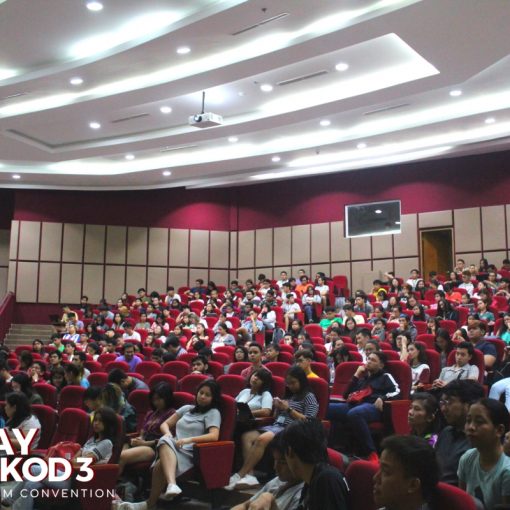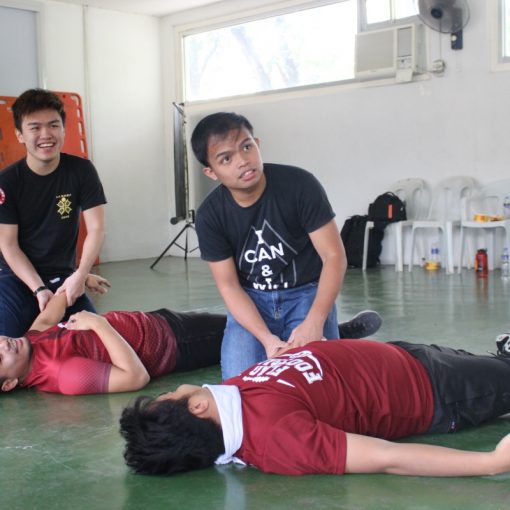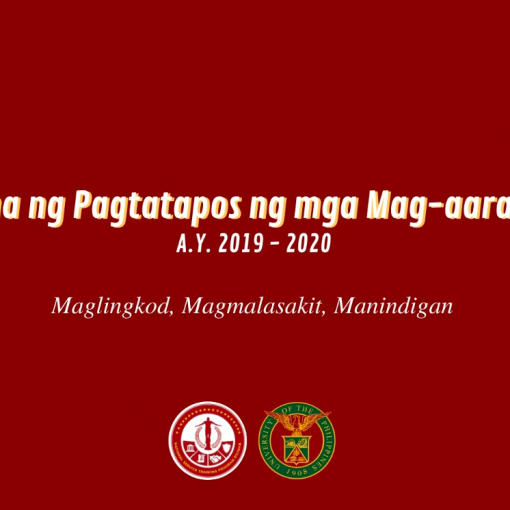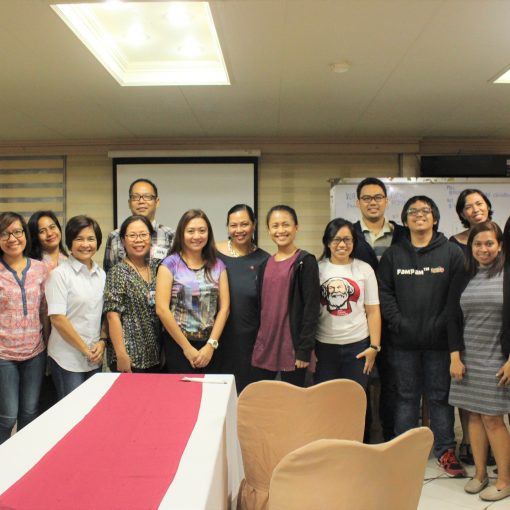The “Tatak UP Diliman NSTP” reflects the University’s identity as a public service university, upholding honor and excellence in the service of the nation. The NSTP Diliman Office has been constantly revitalizing the sense of national service/civic consciousness to our students. This is significant amidst the continuous shift in adjusting to the new normal during the pandemic. Hence, the Office has organized an online roundtable discussion focusing on the foundational concepts of service learning, social entrepreneurship, civic education, civic engagement, and national service in the context of National Service Training Program (NSTP) for the UP Diliman NSTP implementers.
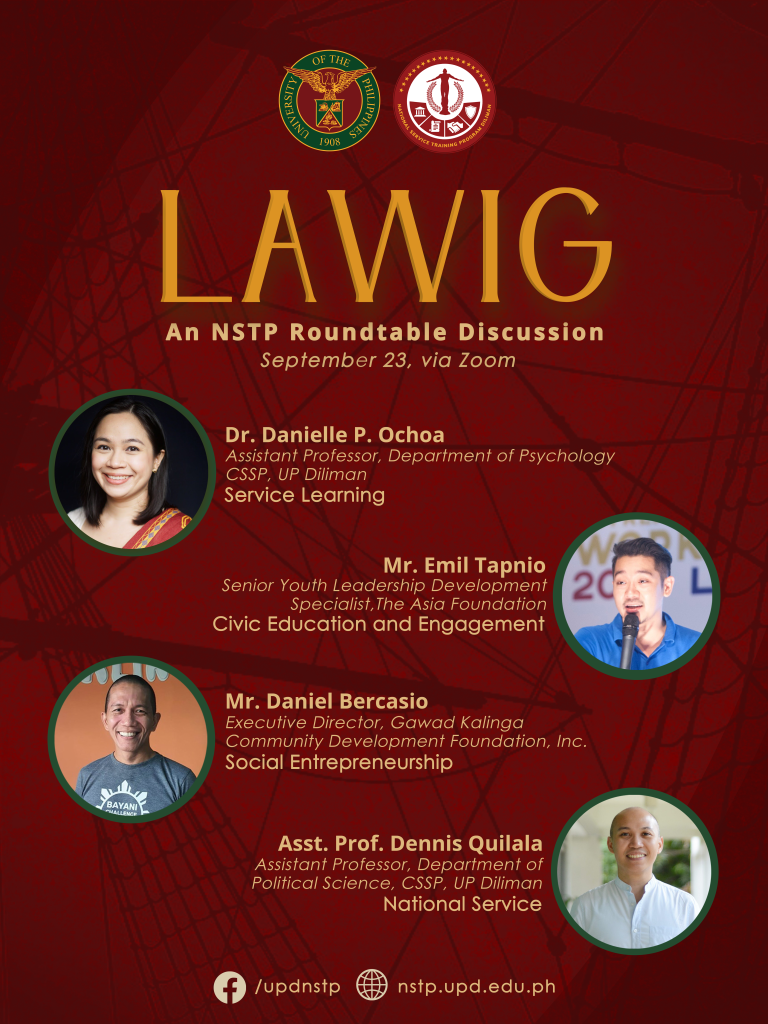
The three-hour online roundtable session entitled, “LAWIG: An NSTP Roundtable Discussion,” was conducted via Zoom on September 23, 2022. Forty-two (42) NSTP coordinators, faculty, and implementers from nineteen (19) different units participated in the discussion.
National Service
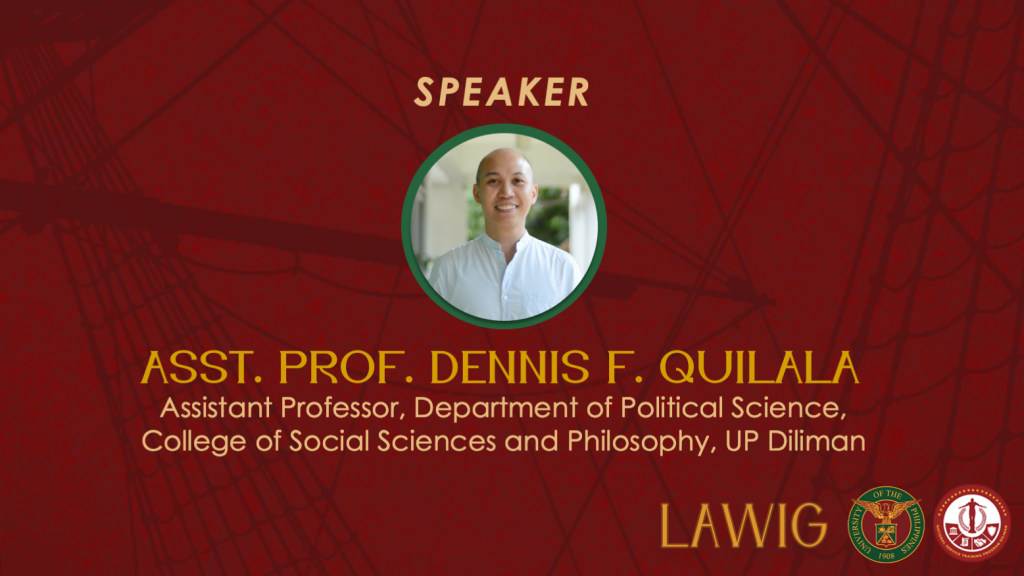
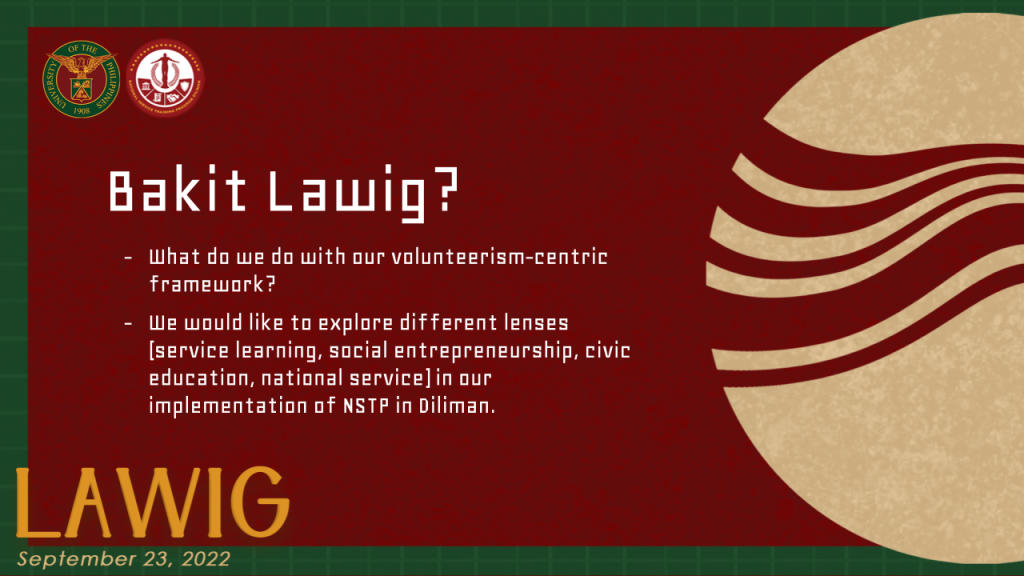
Asst. Prof. Dennis Quilala, NSTP Diliman Office Director, opened the session with the agenda setting with the question “Bakit Lawig?” Dir. Quilala proceeded on differentiating the concept of “volunteerism” as a module in NSTP, and the services that may be required by the state (personal, military, or civil) as graduates of NSTP. As mandated by the NSTP Law (RA 9163) and the NSTP Implementing Rules and Regulations (IRR), the state may tap the NSTP graduates as reservists – both the National Service Reserve Corps (from LTS and CWTS graduates) and the Citizen Armed Forces (from ROTC graduates).
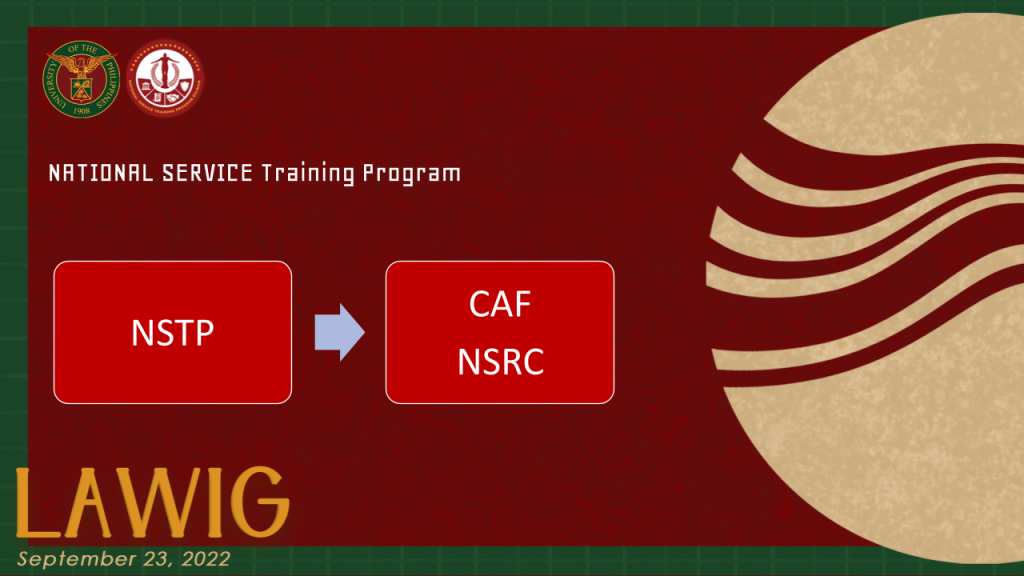
He then discussed the concept of national service in relation to NSTP. Through the available literature, he defined it as “a long-term commitment for our NSTP students.” The following were also highlighted in his discussion:
- training for national service is required and mandated by the law;
- after the NSTP, service may be mandatory and not voluntary; and
- it involves incentives.
Volunteerism is important, but NSTP is more than volunteerism.
He then urged the participants to frame the implementation of the NSTP in the context of national service and not just limit it to volunteerism.
Service Learning
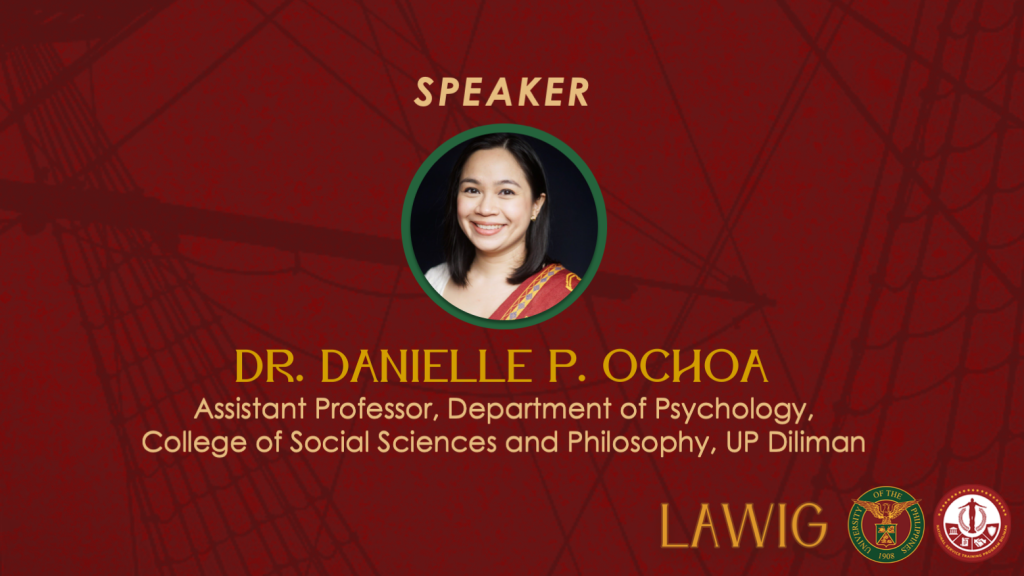
Dr. Danielle “Dani” Ochoa, from the Department of Psychology, UP Diliman, discussed the concept of service learning in relation to NSTP, by breaking down this definition:
“Service learning [is] a credit-bearing educational experience in which students participate in an organized service activity that meets identified community needs and reflect on the service activity in such a way to gain further understanding of course content, a broader appreciation of the discipline, and an enhanced sense of civic responsibility.”
(Bringle & Hatcher, 1996, p. 222)
She also emphasized that service learning is a framework to bridge the course content to the service the students have rendered. Some of the important factors in service learning are:
- the alignment of course objectives and student outcomes;
- community needs assessment; and
- reflections before, during and after the experience.
It is also important to know that in service learning – the students, the academic institutions, and the community have their own roles and responsibilities in these experiences.
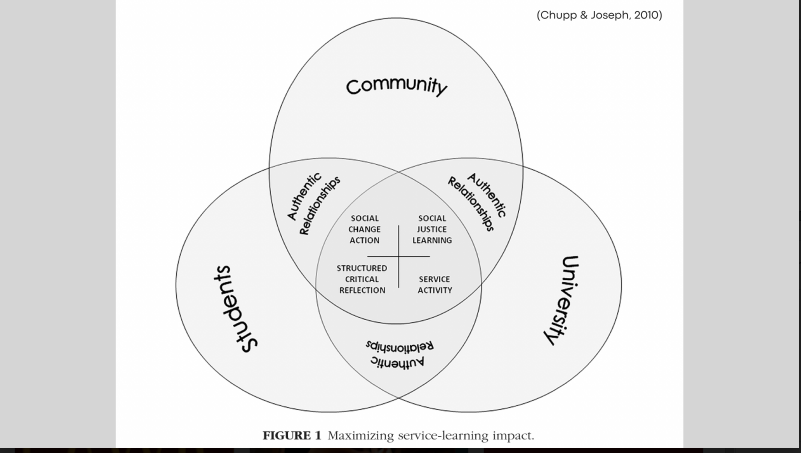
She ended her discussion with a challenge to the participants through her question, “How can we move towards the most impact and sustainability of the service?”
Social Entrepreneurship
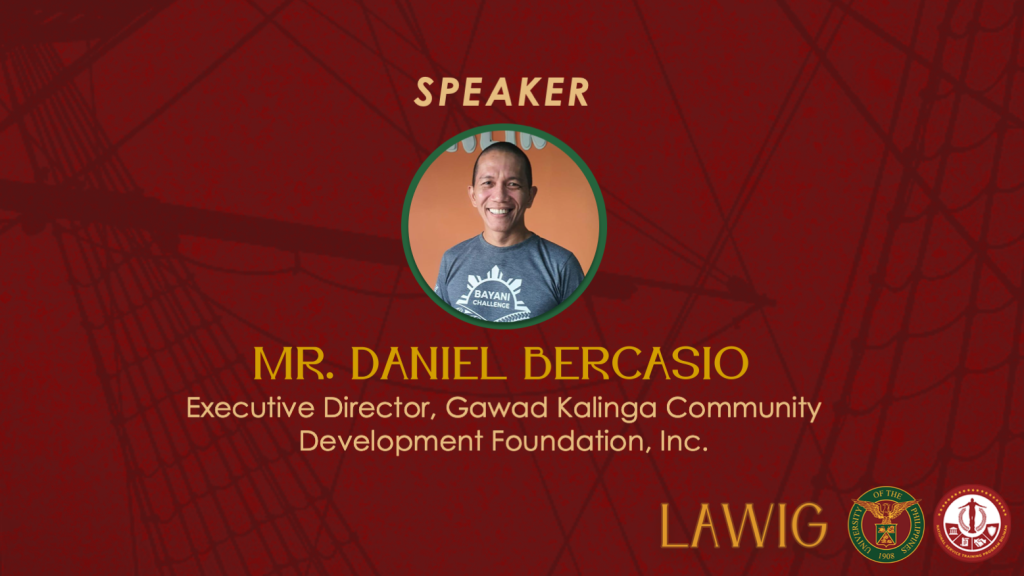
Social entrepreneurship, or social enterprise, was discussed by Mr. Daniel Bercasio, the Executive Director of Gawad Kalinga Community Development Foundation, Inc. He described it as a very wide concept but can be simplified to “an engagement where there is a mix of business profit and altruistic objectives.”
He highlighted three components for the social enterprise – social issues, business, and innovation. He said innovation is where NSTP comes in. While sustainable development takes time that students will not have in their tertiary levels, Mr. Bercasio noted that the NSTP as a program can be an avenue for the first steps in this undertaking. NSTP can provide the opportunities to expose the students to the social realities, and provide them an enabling space for innovation – a space where students can explore their ideas in solving these social issues, and a chance to coordinate and cooperate with [business] partners aligned with their objectives.
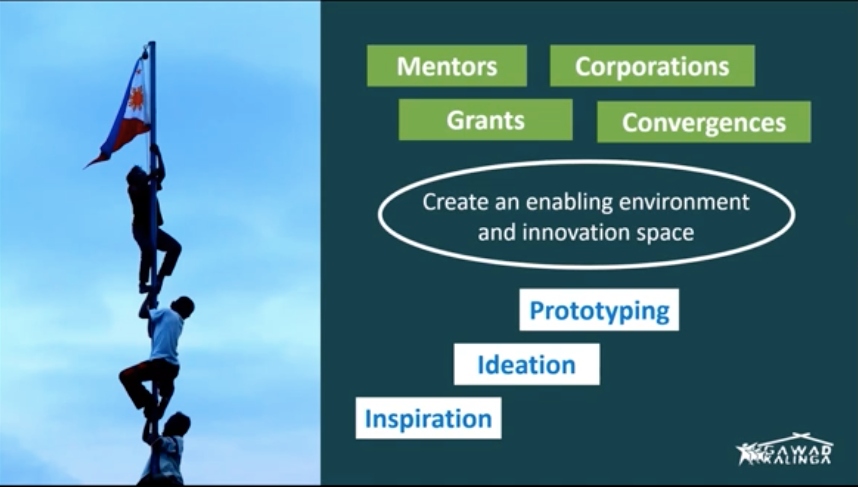
Civic Education & Engagement
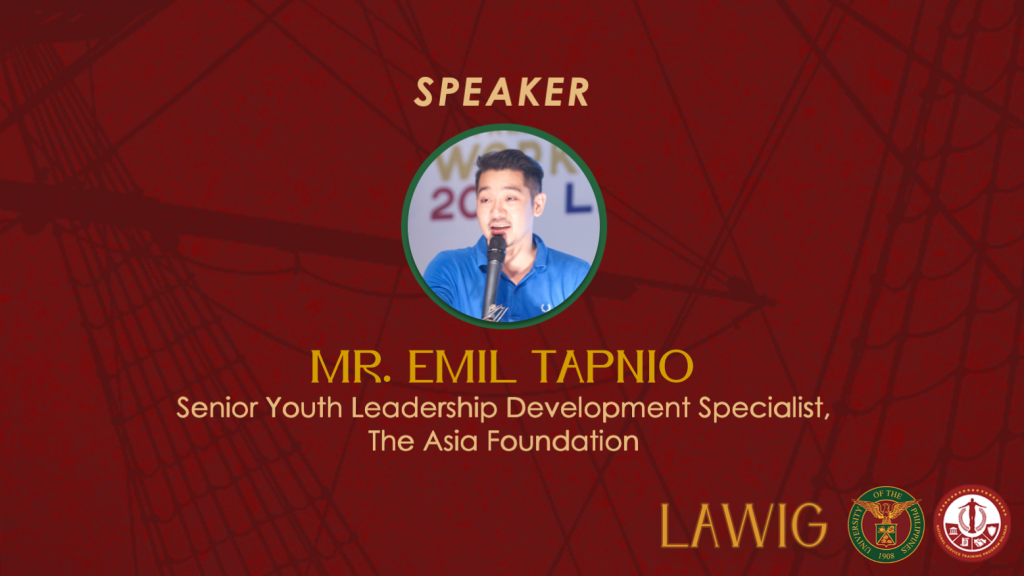
Mr. Emil Tapnio, Senior Youth Leadership Development Specialist from The Asia Foundation, shared his experiences in civic education and engagement through the YouthLED.
“Youth Leadership for Democracy (YouthLED) is a five-year program that aims to increase civic engagement leading to strengthened participation in Democratic Governance.” – YouthLED Website
Mr. Tapnio highlighted what they call the legacy component of this program – the civic education and civic participation component. He tackled how they conducted a survey, designed to provide input and information that can help YouthLED in increasing civic engagement, and empowering youth leaders and youth organizations in the Philippines; and he also discussed its implications, and the social interventions they initiated.
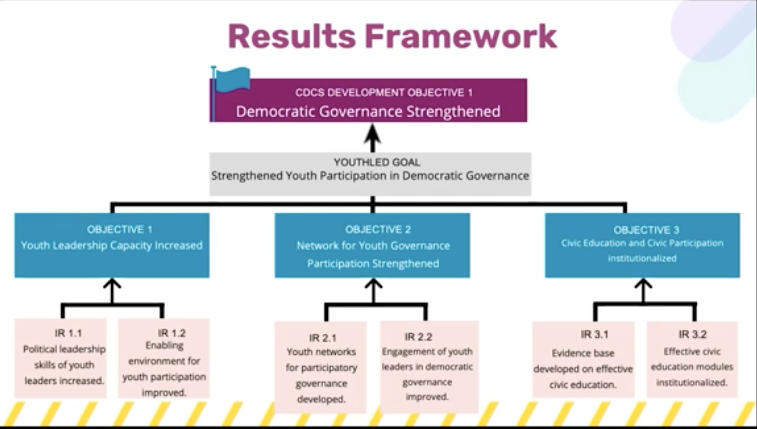
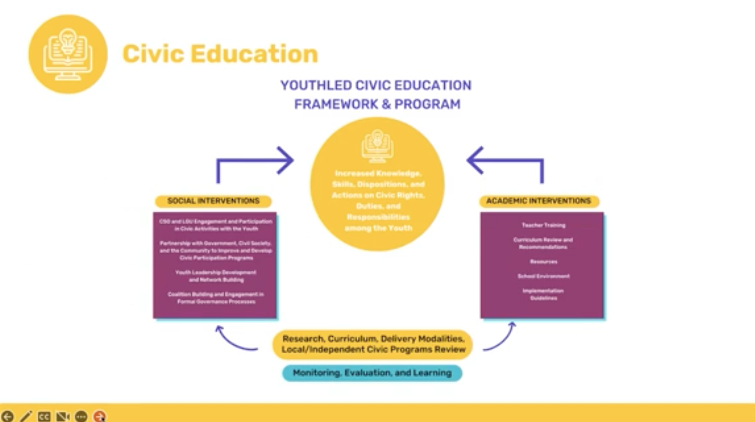
He emphasized the importance of a well-founded civic education during the formative years of the students, for a more sustainable and active civic participation of the youth starting their tertiary levels. NSTP then is an avenue to apply these citizenship training and leadership skills. Mr. Tapnio also pointed out that the role of NSTP Implementers includes anchoring these initiatives by the students through our partners (community, organizations, private institutions) for sustainability.
Following the introduction of the abovementioned concepts, the session then proceeded to the Q and A session. Questions with nuances of specific units or component courses, and concerns were raised by our participants, and were addressed and discussed by the group.
Before adjourning, Dir. Quilala then encouraged the participants to reflect and think about NSTP in the different lenses of service learning, social entrepreneurship, civic education, national service and how it will affect the implementation of NSTP in UP Diliman. These reflections will hopefully be explored and discussed further in future initiatives.
Dr. Likha G. Minimo, Deputy Director of NSTP Diliman Office for NSRC, wrapped up the session with her closing remarks.
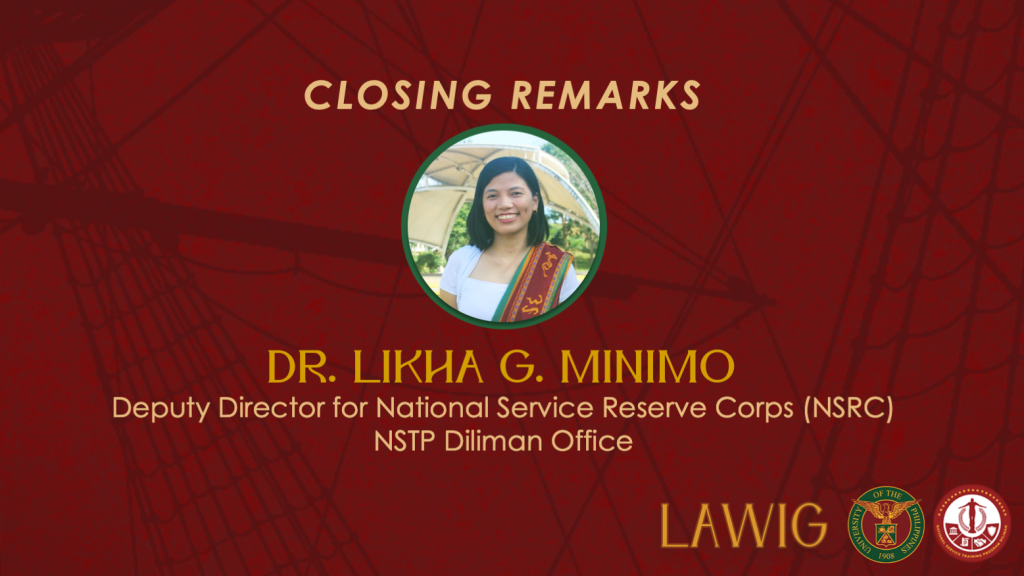
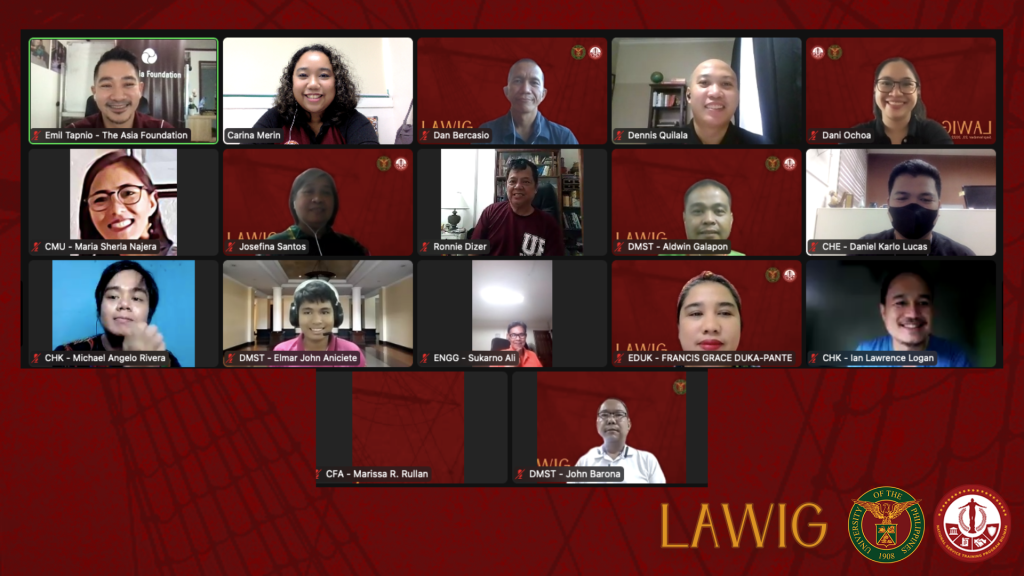
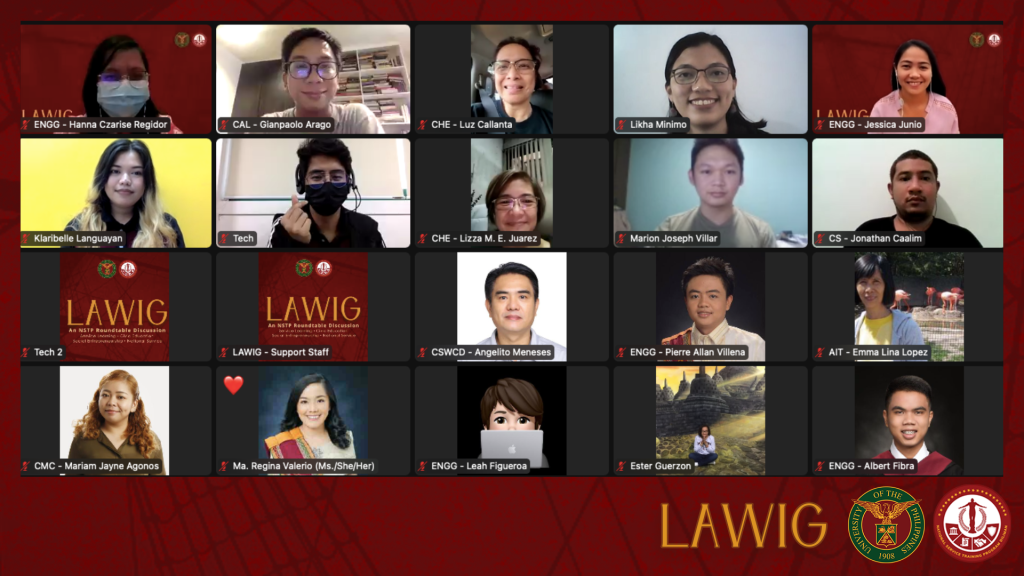
By Carina Merin

